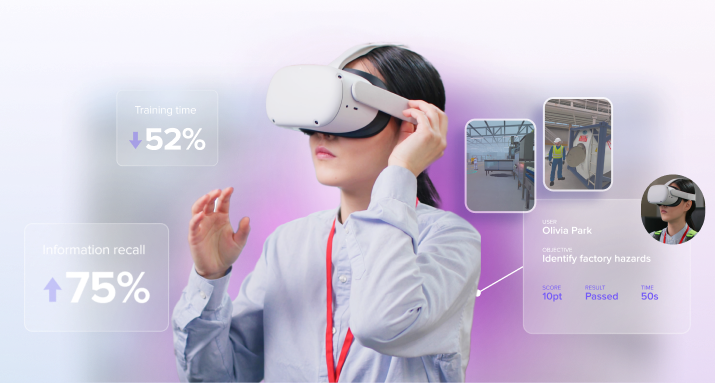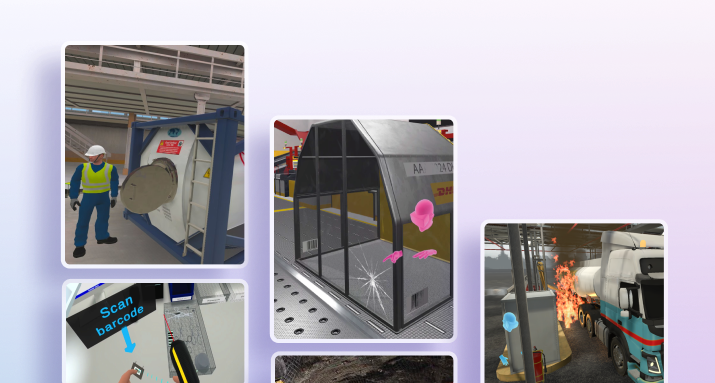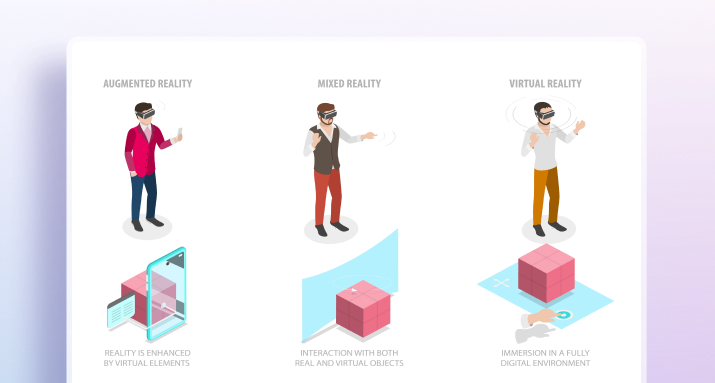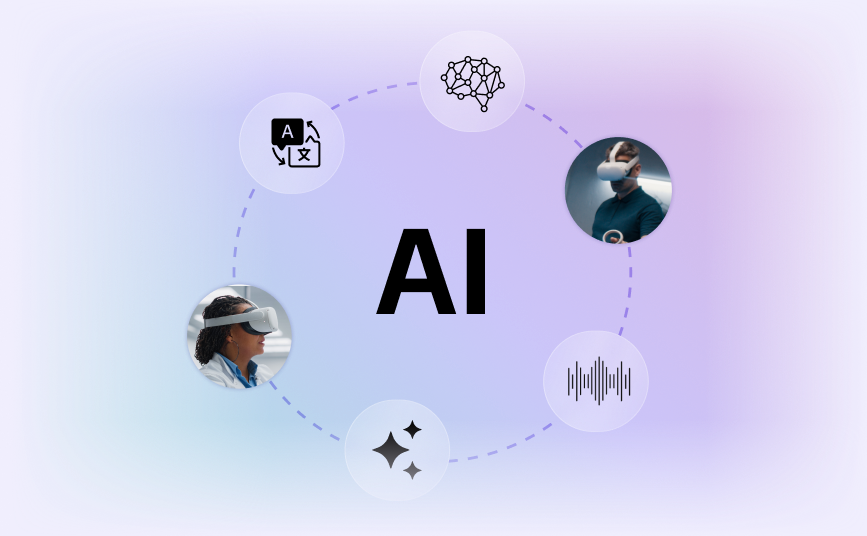
In this article
Enhanced immersive and interactive experiences
Intelligent feedback and performance evaluation
Translation and inclusivity features
Real-time access to critical resources
Efficient and cost-effective content development
Personalized learning paths
Increasing scalability
Artificial Intelligence (AI) is rapidly transforming Virtual Reality (VR) training, bringing unprecedented levels of personalization, efficiency, and engagement to the learning experience. Here’s how AI is driving improvements in VR training across various sectors:
Enhanced immersive and interactive experiences
AI-powered virtual characters and non-player characters (NPCs) create dynamic and engaging training sessions by delivering realistic interactions that captivate learners. These characters can interact with users in lifelike ways, making the training environment more compelling and immersive. Such interactions help learners develop practical skills and decision-making abilities in a controlled yet realistic setting. This level of immersion enhances the overall training experience, ensuring that learners are fully engaged and better prepared for real-world applications.
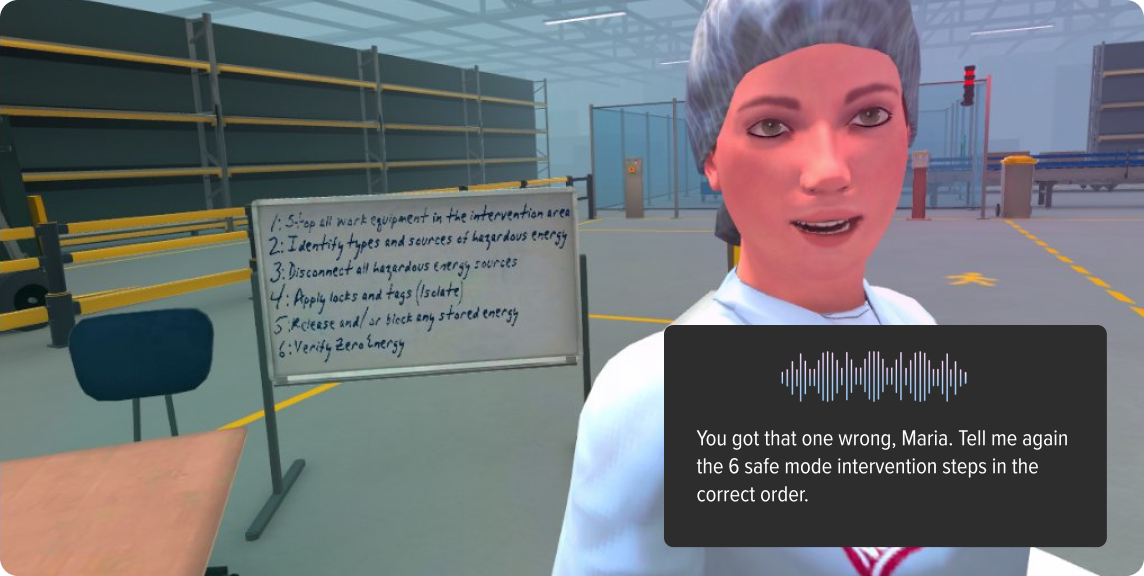
Intelligent feedback and performance evaluation
AI-driven analytics offer real-time feedback and performance assessments, helping learners understand their progress and areas needing improvement. By continuously monitoring user performance, AI can identify skill gaps and recommend specific training modules to address these deficiencies. This data-driven approach ensures a more efficient use of training resources and helps organizations achieve higher returns on their training investments.
Broaden accessibility with translation and inclusivity features
AI enhances the inclusivity of VR training by providing real-time translation and accessibility features. This functionality ensures that training is available to all learners, regardless of their language or abilities. Such inclusivity is essential for global organizations looking to standardize training across diverse teams. For example, real-time translation can allow a diverse workforce to participate in the same training session without language barriers.
Real-time access to critical resources
AI integration in VR environments allows learners to access important information from existing documentation instantly. This ensures that trainees have the resources they need at their fingertips, enhancing the overall learning process and ensuring that critical information is always available when needed.
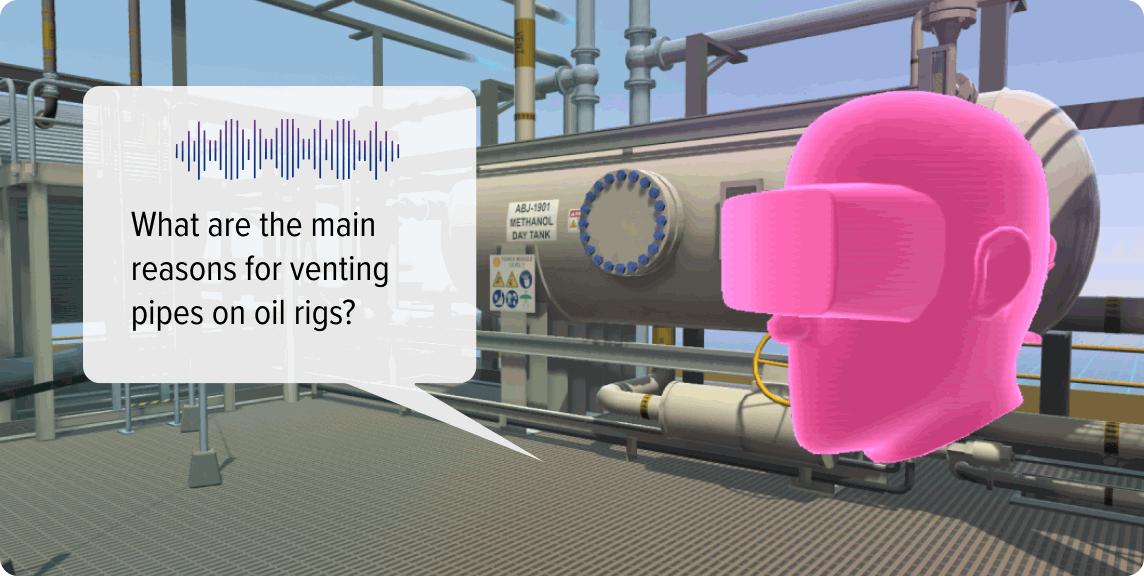
Efficient and cost-effective content development
Generative AI significantly reduces the time and cost associated with developing VR training content. Creating immersive and interactive VR environments can be resource-intensive. AI tools streamline this process by automatically generating realistic scenarios, environments, and avatars, making it feasible for organizations to deploy VR training on a larger scale. This capability is crucial for sectors like healthcare, where VR can simulate surgical procedures, allowing medical professionals to practice in a risk-free environment.
Personalized learning paths
One of the most significant advancements is the use of AI to create customized learning experiences. AI algorithms analyze user interactions and performance data to adapt VR training content in real-time. This ensures that each learner receives the most relevant and effective training materials tailored to their unique needs. For instance, some learners might engage more with scenario-based simulations, while others might benefit from interactive tutorials and practice sessions. This approach not only enhances engagement but also improves knowledge retention and training outcomes.
Increased scalability
The integration of AI with VR makes it easier to scale training programs across organizations, regardless of geographic location. This is particularly beneficial in the era of remote work, where VR can facilitate team-building activities, collaborative projects, and skill development among remote teams. AI ensures that these VR training programs are not only scalable but also maintain a high level of personalization and effectiveness.
In summary, the convergence of AI and VR is revolutionizing the landscape of training and development. AI’s ability to personalize learning experiences, provide intelligent feedback, streamline content creation, and enhance immersion is driving the widespread adoption of VR training across various industries. As these technologies continue to evolve, we can expect even more innovative and effective training solutions in the near future.
Ready to unlock the full potential of VR training? Get in touch with our team to start planning your VR training project today.

